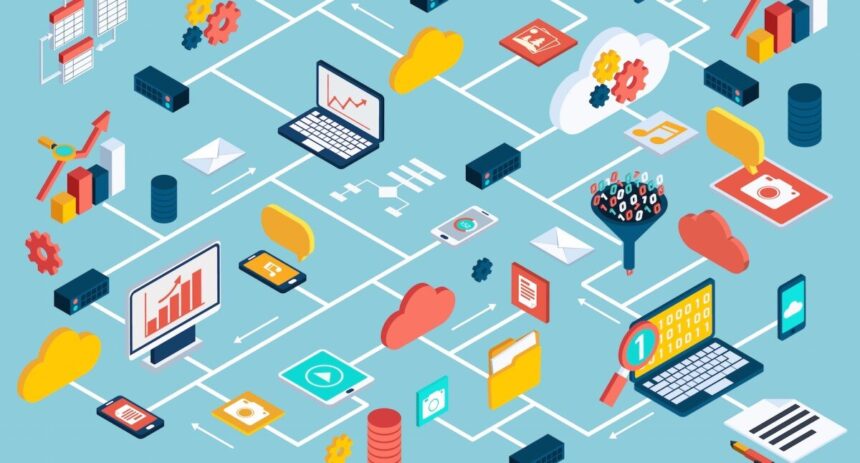They say that ‘knowledge is power’ and in the age of information, this is an understatement. Over the past few years, the emphasis on big data has been growing, and experts in virtually every field are calling it a revolutionary development. However, while this revolution is still under way, it is still uncertain ‘where it will be taking us’ in the future. There are several companies nowadays that dedicate themselves to interpreting terabytes of information and quantifying it allowing businesses to make use of this relatively new technology.
Every three years or so, the amount of data available to us doubles. All this information consists of online transaction, social media interactions, real-world analytical data and of course the explosion of the mobile phone industry. Additionally, we have seen an increase in data storage regarding capacity at the same time technology is becoming cheaper.
Super computers allow data scientists to create more sophisticated algorithms allowing absolute precision when it comes to data analysis. From going through terabytes of information and pattern recognition, decision making is now based more on actual data points as opposed to intuition. No longer does human error play such a significant role within the analysis of data. All of this translates into better customer service, more accurate logistics, in-depth medical records and some of the later developments show us that even creating a news feed is possible for the computational power of modern day technology.
Within an industry, the revolution of big data has given birth to companies such as Uber and Airbnb, while all the while none of these businesses own physical properties. They act merely as a third-party platform between individuals. It significantly reduces costs and increases profitability, mimicking what a ‘free market’ should look like it. When it comes to online streaming services, the data is being used to create custom feeds for individuals based on their preferences. Everything from supply chain management to hospitality has been affected by this significant development.
Having the capability to analyze data is key to gaining a competitive advantage within many big industries. While the medium is still in an evolutionary process, we are seeing that more and more companies are investing large sums of money into big data.
However, only purchasing technology isn’t enough. An organization should truly embrace the ‘culture of big data’ and transform the way they do business to use it effectively. The corporate culture needs to evolve to utilize this data in their day-to-day activities about goal setting, efficiency mapping and much more. Only by merging big data with your current business practices will a company benefit to the full extent.
Nonetheless, one of the greatest challenges to achieve the above mentioned “merger” comes down to the human element. People are creatures of habit, and whenever we introduce a new ‘method’ or ‘technique,’ there always seems to be some resistance to the change. Additionally, many of the ‘human filled positions’ within the organization could be taken over by a machine, meaning the organizational structures of future businesses will drastically change. It doesn’t mean just expanding your IT department either. You’ll have to re-educate your entire workforce to take advantage of Big Data entirely.
It means that a new position could be opening within many different industries known as “data translators.” These are people specialized with interpreting the data and translating it to fit within the business model. One can almost think of them as the “advisors to the king” in the day of old. They are the gatekeepers of the data and have the ability to make big data applicable in real world scenarios. One of the primary keys to emerging big data with a company is having senior management on board with the entire plan.
We can expect to see a continual emphasis on the importance of Big Data as it is affecting the medical sector, the way people consume information and physical products. Big Data is revealing to us more about how we behave than millennia of philosophical ponderings of the past. Big Data has impacted Healthcare, decision making, education, academic writing and virtually every other sector of society over the past few years. In fact, even government policies have been affected by Big Data, through polling, social media analysis and much more.
Big Data will only become more important over the years to come and will shape the way humanity moves forward. Globally speaking, it is shrinking the distances between countries, breaking down the barriers of communication and creating a unified global language that everyone can agree on it. We have only seen the tip of the proverbial iceberg when it comes to Big Data, and we can expect it to impact further the way we live, shop and even the way we behave shortly.

